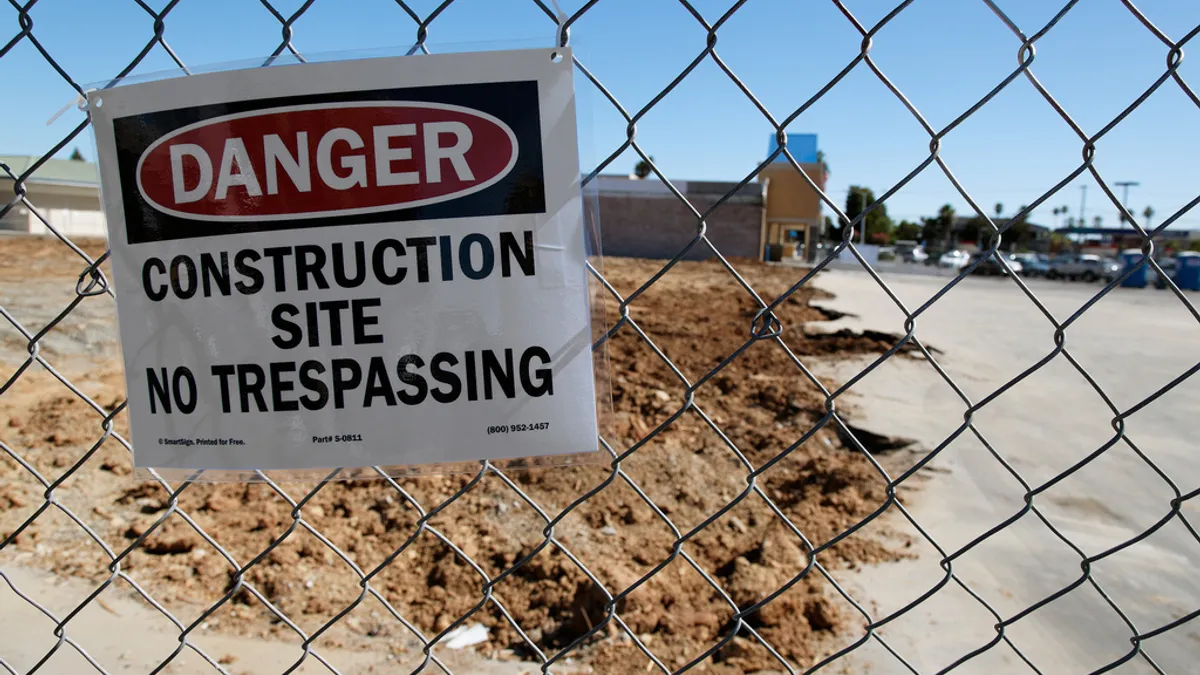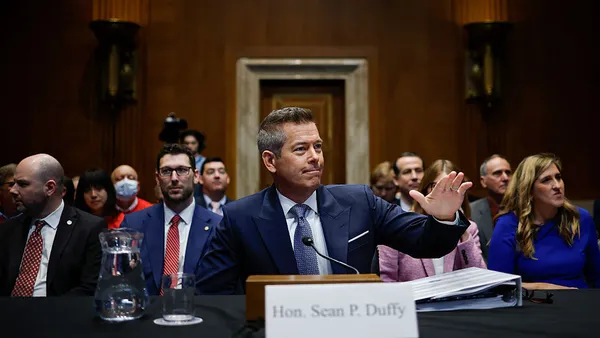Dive Brief:
- The Michigan Occupational Safety and Health Administration (MIOSHA) has issued citations to 19 companies for "serious" COVID-19-related safety violations and levied a total of $51,400 in fines against the offenders. Twelve of the companies are related to the construction industry, and their total fines were $29,900.
- MIOSHA cited the companies under the "general duty" clause, which, like federal OSHA, tasks all employers with providing a workplace free from recognized hazards that cause or are likely to cause death or serious physical harm to employees.
- The companies have 15 days to contest the citations and fines and must prove to MIOSHA that the unsafe conditions listed in the citations have been abated.
Dive Insight:
The citations that MIOSHA issued included:
- Failure to maintain social distancing when possible.
- Failure to require face coverings when social distancing cannot be maintained.
- Not having a COVID-19 preparedness and response plan.
- Failure to designate a COVID-19 workplace supervisor.
- Not training employees on COVID-19.
- Failure to maintain/retain records of daily health screenings.
General duty clause violations, which in Michigan carry a maximum penalty of $7,000, are typically used when there is not a safety standard specific to the condition being cited, and COVID-19 falls into that category in most states and at the federal OSHA level.
And, at least at the federal level, it doesn’t look like a COVID standard is forthcoming. In June, the U.S. Court of Appeals for the D.C. Circuit rejected a bid by the AFL-CIO to force OSHA to create an emergency novel coronavirus safety standard in response to the pandemic. At the state level, Virginia has an emergency COVID-19 standard, and Oregon has issued temporary standards.
States like Michigan, said attorney Phillip Russell with Ogletree, Deakins, Nash, Smoak, & Stewart in Tampa, Florida, are handing out citations because they might believe federal OSHA has not been as aggressive as they should be in acting on violations and in developing a standard.
The problem with coming up with a safety standard specific to COVID-19, however, is that it would be like "trying to hit a moving target" since the advice coming from health agencies like the Centers for Disease Control and Prevention (CDC) is still evolving, Russell said.
“How do you write a standard and describe what an employer should be doing such that that standard could be enforced with regulatory legal authority?" he asked. “I think it’s an incredibly difficult, if not impossible, task.”
Other issues facing officials as they try to determine if a citation is warranted, Russell said, is that citations under the general duty clause also rely on CDC guidance. In the case of a COVID-19 infection, the issuing agency must also be able to prove that the employee was exposed at work.
The ultimate decisionmakers as to whether state agencies or federal OSHA “got it right,” he said will be the commissions or boards that review contested citations.
And while it is true that OSHA has issued relatively few citations related to COVID-19 thus far, Russell has a reminder: The agency has six months from the first exposure to a hazard to issue a citation, so some employers are not out of the woods yet just because they haven’t heard from OSHA about a violation or inspection performed earlier this year.
His best advice to employers?
Employers might not be able to do everything that the CDC recommends, he said, but they should at least pick some recommendations — such as social distancing, facial covering mandates, staggering schedules and providing handwashing stations — and follow them.
“The employers that are doing nothing and essentially thumbing their noses at the CDC and health agencies are the ones that will get in the most trouble,” he said. “A cavalier attitude toward this, even if you don’t believe the threat is as high as the government says it is, could get you in regulatory hot water.”












